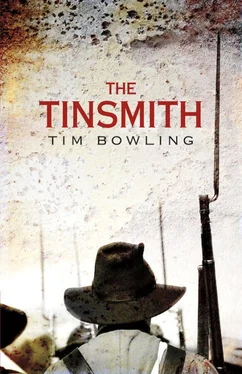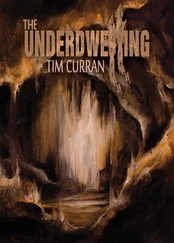If such a man so strongly disapproved of salmon canning, that did not bode well. At the very least it gave, to those “difficulties” Dare had mentioned, a greater gravity. And when Thomas Lansdowne had arrived, his burly, stumplike figure so incongruous below a face restless with anxiety, it was as if the walls of the house had collapsed and left them all standing separate and vulnerable in the elements.
Anson had excused himself shortly after the meal, out of courtesy, knowing that business was to be discussed, but he also longed to escape the tense gloom. It was no exaggeration to say that Henry Lansdowne despised the rat-faced agent and his cigars, nor that he resented his younger brother’s inviting such a man into their lives. On several occasions, he had made pointed references to farming and ranching as the foundations of community, references that raised his brother’s chest like a billows. Oblivious to the Lansdownes’ unspoken disagreement, the agent praised the younger brother for his foresight. “A man can do nothing greater for British Columbia,” he had said, “than to invest in the salmon. It’s silver gold.” No one had joined him in the chortling pleasure he’d derived from the phrase, but that hadn’t stopped the agent from repeating it.
At that point, fatigued from his journey and depressed by the atmosphere, Anson had decided that a few hours with Virgil’s Eclogues would be recondite.
A long shriek pierced the stillness, then faded away in a choked strangle. A wildcat of some kind. Anson recalled the terrifying cries he’d heard in the swamps of the Peninsular Campaign and sat up, aware of his heartbeat; it was stronger than usual. He took his left wrist in the opposite hand. Of course it was natural that he would think of the war while on his way to see Dare for the first time since 1866, when the former slave and soldier had spent a few days at Anson’s home before heading west to make a fresh start for himself. And yet there was something in the heaviness of the air, in the fraternal tension between the Lansdowne brothers, that made him feel he’d crossed some invisible line and re-entered the past. But how could it be? He wasn’t even on American soil.
Difficulties, the telegram had said. What difficulties, other than the approach of death, could there be after what they’d endured together, after the torn bodies they’d tried to repair? Yes, he had lent Dare money, but that was nothing to the help the man had given him at Antietam. That service had changed Anson Baird’s idea of himself, had brought him face to face with the fundamental questions of honour and justice. Yet as the long shriek rose and fell again, the word “difficulties” reeked of blood and chloroform and deceit. No war ever ends, Anson thought, seeing Odysseus, hooded and plotting, as he returned to his home ten years after the fall of Troy. But Anson was no Odysseus. Dare was not his son, there was no Penelope, no kingdom. The only parallel was the memory of death and the palpable sense of violent change. Cold sweat formed on Anson’s temples. Slowly he brought his feet down to the bare wood floor and stared at the window.
This darkness had a weight unlike anything he’d experienced, yet it was disturbingly familiar. He didn’t want to know why, but the answer drifted to him through the thin opening between the glass and sill, one word like a light-dazed moth: Dare. Anson rubbed his eyes, could almost feel the blood slosh behind them. He stood and began to pace.
“O mihi longae maneat pars ultima uitae, spiritus et quantam sat erit tua dicere facta!”
But recitation was futile. The ancient language wore blood- and pus-stained dressings, and each word dropped on the cold wood like an amputated limb. Anson stopped before the window. As he stared through it, he thought the glass might shatter any moment. Out of old habit, he reached into his pocket for a bottle of opium pills, but he had not taken opium for years. The struggle to stop, for his wife’s sake, had almost killed him, but Anson had not savoured the drug in this way for a long time, not even after Elizabeth’s death, when grief so easily could have weakened his resolve.
He remained at the window and watched the sky turn pink over a blue-black mountain range to the north. He stood until his feet ached and the cattle of the Lansdowne brothers began to low in the fields. A terrible familiarity had wrapped itself around his heart.
Dare. It was, after all, a false name, the name of a dead farm boy that Anson had given, out of an impulse he’d never regretted, to a runaway slave fortunate enough to look white. Dare. The name dropped from Anson’s lips just like Latin, a word in a dead tongue. He wondered why the household did not wake at the sound. Anson closed his eyes as light moved swiftly over the river and marshes.
When the air greyed outside the window and the first pips of bird-sound drifted up from below, Anson could bear it no longer. Moving quietly, he put on his coat and boots, tiptoed down the hall past the Lansdowne’s bedroom, walked softly down the stairs to the front door, and left the house. Outside, the musky smell wrapped him like a buffalo robe. Other than the intermittent lowing of cattle, bird pips, and river trickle, the pre-dawn was silent. Anson negotiated his way through the muddy field to the dew-slick gangway, walked to the edge of the wharf, and looked at the river. It was very broad, several miles across; he could see nothing but water. The agent had explained, in his boosterish manner, that millions of salmon swam right past this very landing on their way inland to spawn—a man could throw a net off the wharf and fill it in minutes during one of the big runs. And this year, he had said, a glint in his eyes, was expected to be very good indeed; there was no telling how many fish might choke the river.
Anson stared at the water and tried to imagine so much animal energy below the surface. But it was unimaginable. The river was dark, roiling. As the minutes passed, the surface grew lighter, became a rich brown, and moved faster, judging by the branches and what sometimes seemed to be whole trees on its surface. Anson stepped back from the edge. This was no eastern river; its wildness was far beyond the ken of his experience. His resolve to find a boat and row upriver in the direction of Crescent Slough weakened.
He looked nervously up the bank. Somewhere in that short grey distance, Dare was sleeping. The idea was no more fathomable than the idea of millions of fish pouring themselves against the river’s flow. How rarely Anson had known his friend to sleep! In fact, he couldn’t recall Dare’s face in repose—always he had been awake, taking things in, helping, moving before being asked. It had been the same during those few days after the war, when Dare, at once grateful for Anson’s friendship and restless to be on his way again, seemed never to relax. And to think of how much he had travelled since Anson had first lost news of him—a few months after Antietam, when ill health had forced Anson to resign his commission, though not before Dare was safe, as safe as a man could be while fighting a war. Anson did not even know all the places Dare had gone—south and west with the Army of the Potomac, then afterwards to Kansas, San Francisco, Victoria, and now the mouth of the Fraser River—no doubt there had been other stops along the way. Anson wondered how heavily those years of constant motion would be mapped on his friend’s face. Dare would have aged; he could not have discovered any way to stop the progression of the suns. No, not even Dare could have learned that.
Faint voices swirled out of the grey. Anson tensed. Rapidly the voices grew louder—a harsh, guttural tongue suddenly exploded in the air. A wide, flat skiff filled with men emerged out of the half-light and drifted rapidly toward him. One man stood, hunched over, in the centre of the dark heads—like a flower with its petals torn off. Anson rallied to the panic in the voices; the shouts had turned to cries as the river hurled the skiff along the bank.
Читать дальше












